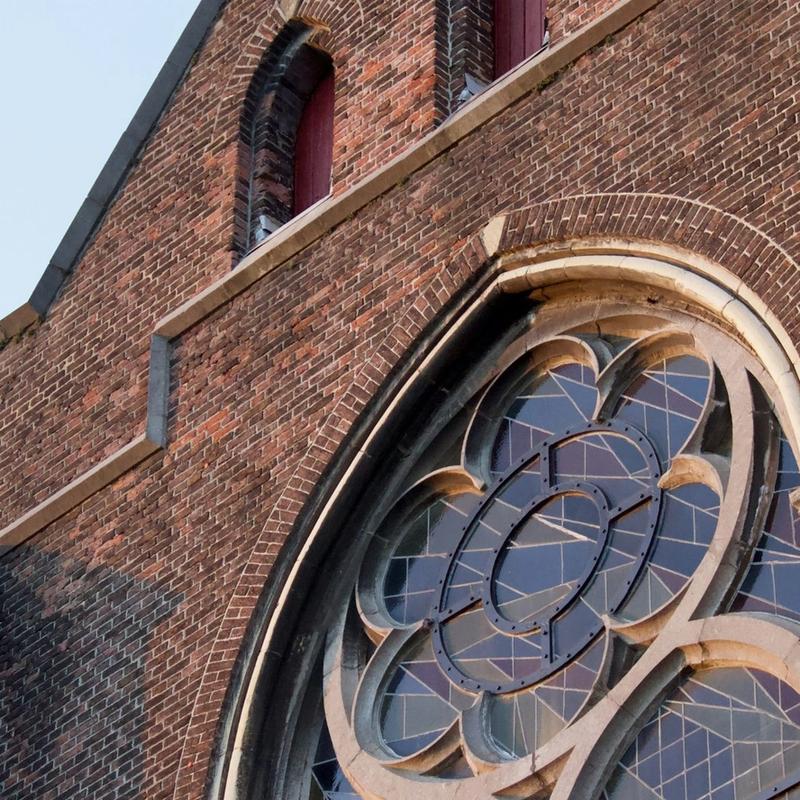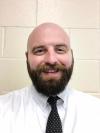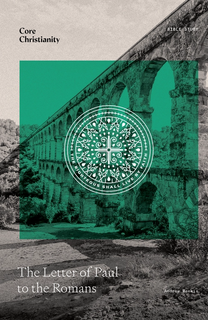If a person knows only one thing about Augustine, it is likely these oft quoted lines from his autobiography:
“For Thou hast made us for Thyself and our hearts are restless till they rest in Thee. Grant me, O Lord, to know which is the soul’s first movement toward Thee… My faith, Lord, cries to Thee, the faith that Thou hast given me.”[1]
This passage is so famous, at least in part, because it shows what an astute theologian and keen psychologist, in the old sense of one who studies the soul, Augustine was. His experience of coming to Christ gave him a rich understanding of humanity's deepest longings and of the only one who can fulfill them.
Early Life
Augustine was born on November 13, 354 AD in the Roman town of Thagaste (known today as Souk Ahras, Algeria). Located 200 miles from the sea, Augustine grew up in an area dominated by countryside and agriculture. Though poor, his father Patricius was a citizen of a Roman city, which meant he had status in society above that of a farmer or laborer. Augustine’s only hope to advance beyond this station in society was through education. His father did everything he could to ensure that Augustine received the schooling he needed to get ahead in life, even enlisting the aid of a wealthy patron named Romanianus.[2] As a result, Augustine was able to study in Carthage and then embark on a career as a teacher of rhetoric in Thagaste, Carthage, and then Rome before taking a position in Milan (384). This trajectory was setting Augustine up for a political position in Roman society, as he increased his status and wealth. God, however, had different plans. By 386, Augustine had converted to Christianity.
Augustine the Sinner
Augustine’s mother was a central figure in both his life and conversion. Monica was a Christian and sought to raise her son in the faith. As a young boy, he was influenced by her faith, but as he grew older, he moved away from Christianity. In his autobiography, Confessions, Augustine chronicles this journey. In his youth he confesses to lying endlessly, stealing, and cheating without remorse.[3] In his adolescence, Augustine said, “I burned for all the satisfactions of hell, and I sank to the animal in a succession of dark lusts.”[4] Augustine was overcome with, and ruled by, his sexual desires as a young man, often, he wrote, not just for the pleasure of the sin, but in order to be able to boast about his actions to his friends.[5] After telling of a time he and his friends stole pears, not for want, but merely to steal something, he wrote “I loved the evil in me—not the thing for which I did the evil, simply the evil: my soul was depraved.”[6]
Augustine the Christian
The story of Augustine’s conversion to Christianity is fundamentally about a man coming to love God as his creator and redeemer. However, there was also a long and complex intellectual path that Augustine traveled before coming to faith in Christ. The details could fill many pages, but a short and simplified sketch includes the following facts. Augustine possessed formidable intellectual abilities. As a young man he put these gifts to use by studying philosophy. After reading Hortensius, a book by the famous Roman orator and philosopher Cicero, Augustine said,
Suddenly all the vanity I had hoped in I saw as worthless, and with an incredible intensity of desire I longed after immortal wisdom. I had begun that journey upwards by which I was to return to You.
His journey upward passed through a Manichean phase, a skeptical phase, and a Neoplatonic phase.[8] As he studied and wrestled with philosophies of the day, Augustine came to know and love God and his word more truly and deeply. The journey came to a head one day as Augustine found himself in a garden, sitting under a fig tree, weeping over his sins: “I felt that I was still bound by them.”[9] From somewhere in the distance, Augustine heard the sound of a child singing, “take and read, take and read.” This did not sound like any children’s rhyme or game that he knew of, so Augustine took the chant to be an exhortation from God to read from the Bible. He opened his Bible at random and read the first passage he saw:
Let us walk properly as in the daytime, not in orgies and drunkenness, not in sexual immorality and sensuality, not in quarreling and jealousy. But put on the Lord Jesus Christ, and make no provision for the flesh, to gratify its desires.
—Romans 8:13-14
Augustine writes that as soon as he read these words, “it was as though a light of utter confidence shone in all my heart, and all the darkness of uncertainty vanished away.”[10] God used this verse to radically change the heart of Augustine. Now Augustine looked at God alone as the greatest treasure.
Augustine the Bishop
Augustine's conversion experience in the garden took place in the summer of 386. Just under a year later, Augustine was baptized. Shortly thereafter his mother, Monica, died. One year later Augustine moved back to Thagaste and established a small community of believers. In 391 the people of Hippo (modern day Annaba, Algeria) called him to be their bishop. One historian writes, “When Augustine became a bishop, it marked the watershed in his life. He began seriously to grapple with the exegesis of the Bible… and his grasp of theology greatly deepened.”[11] As Augustine deepened his knowledge of theology, he became embroiled in major controversies and wrote several seminal books.
Augustine was a talented and prolific author. He wrote an autobiography which he called his Confessions (mentioned above). Two other notable books include his masterpieces, On the Trinity and The City of God. As the name clearly states, the first book was about the doctrine of the Trinity. This book reflects 20 years of reflection on the Scriptures and their teachings. One of the key claims about God that Augustine studied and defended in this book was that the Holy Spirit proceeded from the Father and the Son. In The City of God, Augustinewrestled with the fall of Rome as it was happening before his own eyes. He contemplates God’s role and purposes in the calamity of his day and age and argues, as one scholar sums up, “the meaning of history lies not in the flux of outward events, but in the hidden drama of sin and redemption.”[12] In other words, no matter what convulsions the kingdoms of this world go through, God’s Kingdom is sovereign, stable, and focused on salvation.
The Final Days of Rome & Augustine
As the Western Roman Empire began to fall to repeated invasions, Augustine continued his work as a writer. Towards the end of his life he undertook the task of reviewing all his writings in order to offer explanations and corrections. He was not slowed by the fact that society was crumbling and, as the biographer Peter Brown says, his church was “packed with the demoralized remnants of a once splendid Roman society.”[13] Only sickness could stop him and on August 28, 430 A.D. Augustine died after fighting a fever for seven days. Augustine began his autobiography with a prayer asking to be shown the first movement towards God. Now that he has undertaken the final movement towards God, Augustine rests in the love of his redeemer, perfectly at peace, for his faith has become sight.
[1]Augustine, Confessions, I, I.
[2] Peter Brown, Augustine of Hippo: A Biography (Berkeley, University of California Press, 2000), 9.
[3]Augustine, Confessions, I, XIX.
[4]Confessions, II, I.
[5]Confessions, II, III.
[6]Confessions II, IV.
[7]Confessions, III, IV.
[8]Henry Chadwick, The Early Church, 217-218.
[9]Confessions VIII, XII.
[10] Ibid.
[11]Henry Chadwick, The Early Church, 219.
[12]Henry Chadwick, The Early Church, 227.
[13] Peter Brown, Augustine of Hippo: A Biography (Berkeley, University of California Press, 2000), 435.






